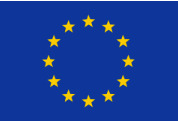Challenges addressed by the project
As the world is facing severe environmental problems impacting all sectors of everyday life linking societal with economic factors and leading to biodiversity loss and environmental degradation, solutions need to be found to meet these challenges.
These challenges require developing an encompassing framework for research and innovation (R&I) to address environmental and climate ethics and integrity issues, which involve significant environmental and climate repercussions (e.g., R&I in the area of electro-magnetic fields, geoengineering or biotechnology in food systems). A central pillar of the European Green Deal and associated legislation is to promote new technologies and sustainable solutions to reach net zero emissions in the EU by 2050.
This is when RE4Green, a EU funded project under the HORIZON-WIDERA-2021-ERA-01 call with a grant of 2.999.343,75€, comes in.
Main project objective/mission
The RE4Green project will address environmental challenges by using a bottom-up, network-based approach. The project aims at designing and co-creating a research ethics and integrity framework for environmental and climate studies. Furthermore, RE4Green will provide research integrity guidelines, policy recommendations and training to support the key ambitions of the Green Deal of the European Union, like the net zero emissions in the EU by 2050.
Consortium
Coordinator: UNIVERSITY OF BONN (UBO),
Partners: EARMA, EUREC OFFICE, TRILATERAL RESEARCH LIMITED (TRI IE), UNIVERSITY OF TWENTE (UT), AUSTRIAN INSTITUTE OF TECHNOLOGY GMBH (AIT), UNIVERSITY OF AARHUS (AU), NATIONAL TECHNICAL UNIVERSITY OF ATHENS (NTUA), EUROPEAN CITIZEN SCIENCE ASSOCIATION (ECSA), KOREA UNIVERSITY (KU), UNIVERSITAT AUTONOMA DE BARCELONA (UAB), UNIVERSITY OF CAPE TOWN (UCT), AMSTERDAM UMC (VUMC), WOMEN ENGAGE FOR A COMMON FUTURE (WECF), NATIONAL UNIVERSITY CORPORATION THE UNIVERSITY OF TOKYO (UTokyo)
Benefits for EARMA community
The EARMA Community of Research Managers and Administrators will benefit from this initiative by contributing to:
- Identify, analyse and assess key and cross-cutting environmental and climate ethics and integrity challenges.
- Build a community for sustained bottom-up engagement, awareness raising, and exchange across stakeholders of the ERA about environmental and climate ethics
- Produce and/or adapt operational (“how-to”) ethics and integrity guidelines and elaborate and disseminate policy recommendations, to support researchers, research ethics committee members and integrity experts, research managers, funders and policy-makers, to account for environmental and climate impacts in R&I.
- Develop traditional and online training materials on ethical and integrity aspects in climate and environmental technologies using micromodules that can be tailored to different target groups.
Contact
More information is available on the project website
Project duration: February 2024 – January 2027
For questions, please contact projects@earma.org.

This project has received funding from the European Union's Horizon Europe research and innovation programme under grant agreement No. 101131706.

